The Korean War has never really ended. An armistice was signed in July 1953, although not by South Korea. No peace treaty has ever been signed by any of the parties, and heavily armed forces face each other across a tense demilitarized zone.
The key to bringing peace to the Korean peninsula and Northeast Asia lies in understanding the role of China.
Since the Chinese regime’s forces publicly entered the Korean War in October 1950, the regime has claimed to have acted defensively.
On June 21, the Chinese state media outlet Chinanews.com published an article repeating the standard interpretation publicized by the Chinese regime since 1950: The positioning of the U.S. Seventh Fleet to defend Taiwan and the allied troops’ crossing of the 38th parallel into North Korea in October 1950 threatened China’s northern region, causing the Chinese Communist Party (CCP) to send troops into combat.
But in fact, CCP troops were there at the beginning, in June 1950. Documents in the Soviet archives, including those from the Archive of the Foreign Policy of the Russian Federation and the Archive of the president of the Russian Federation, show that CCP troops were the main force involved in the invasion of South Korea that started the war.
Before North Korea invaded the south, Mao Zedong had made a commitment to Stalin and Kim Il-sung to send troops. Major General Xu Yan of the People’s Liberation Army, in his book “Mao Zedong and the Korea War,” claimed that the CCP had sent three divisions to North Korea by February 1950.
The CCP had ideological reasons for sending troops. It had relied on the Soviet Union’s help to grow strong and finally seize power in China; at the time, it was ideologically oriented toward the Soviet Union. The CCP’s policy was based on a consideration of the interests of the Eastern bloc, and in this, the CCP was used by the Soviets.
Also, since the communists had won relatively easily in the Chinese civil war, the success went to the leaders’ heads, and they were eager to go to war. They underestimated the fighting power of American troops.
Further fueling the Chinese regime’s desire for war was Mao Zedong, who was a megalomaniac. His character was one of the most important reasons for the CCP plunging into the Korean War.
Unexpectedly, the CCP’s first three military engagements after entering Korea were complete successes. Due to this, today many mainstream Chinese scholars are full of regret that the CCP did not sign a cease-fire treaty earlier.
In any case, the CCP’s hawkish attitude would have gotten it into trouble sooner or later. The CCP’s advances were stopped only when the Party came to know the might of the American military forces.
On the Allied side, the leaders failed to understand the nature of the CCP and the significance of its alliances with the Soviet Union and North Korea. They also did not accurately analyze the nature of CCP leadership, all of which contributed to poor strategic decisions and, as a consequence, mass losses.
The war had no winner; the losses on each side were enormous. The Korean peninsula was reduced to ruins, the split between North and South Korea was aggravated, and the pattern for the Cold War was set.
On the surface, the Soviet Union used the Korean War to drag China into a conflict with the United States and temporarily alleviate strategic pressure in Eastern Europe, while selling weapons to the Chinese.
But during the war, the Soviets’ unscrupulous profit seeking was revealed to the Chinese, and the seed for the split between the CCP and the Soviet Union was planted. Since then, the two parties have engaged in a pattern of mutual deception, appearing close but actually feuding, and in the end almost fell into armed conflict.
The Korean War was a tragedy for the Chinese people. Apart from the widely known losses suffered in the war, it also stabilized and strengthened the CCP’s ruling clique. The Chinese peoples’ effective kidnapping by the Communist Party and isolation from mainstream civilization all increased.
Enormous changes have taken place in global strategy since then, and communism as a world political force has disintegrated. Though the allies paid a miserable price for stability in Northeast Asia, the outcome was significant. The victory was not merely military but advanced the cause of common values: Democracy and freedom were victorious, while totalitarianism took a blow.
The Cold War is over, but military operations in Northeast Asia aren’t. North Korea’s nuclear ambitions are unresolved, and the recent sinking of the South Korean corvette Cheonan has made a tense situation much tenser.
The CCP has always used the posture of a peace-lover when presenting itself to the world, and the international community truly wishes the CCP to play an active role in efforts to denuclearize North Korea. U.S. experts often emphasize the significance of cooperation with the CCP. This type of thinking is misguided and dangerous.
The CCP has changed a lot—its ideology has been transformed. But the essence of its totalitarian rule remains. The Party today would not fight for the Eastern bloc, if it still existed. But the Party also would not hesitate to go to war for its own vested interests.
The CCP has become the enemy of the Chinese people and is no longer capable of deceiving common people into fighting for it. However, with the advances in military technology, war today is fundamentally different from traditional wars.
Possessing weapons of mass destruction enables the CCP to confront the world. The CCP can utilize its military power to support North Korea in a local war, assuring North Korea’s survival.
In turn, the North Korea issue has proven very valuable to the CCP as a bargaining chip with the international community. When China’s role in helping further Iran’s nuclear ambitions comes up, the North Korean nuclear issue relieves the pressure. When the issue of China’s exchange rate comes up, the North Korean nuclear issue can be used to shift attention. When domestic tensions flare up in China, the military standoff between North and South Korea distracts the populace.
Because the CCP profits from the ongoing state of near war on the Korean peninsula, peace will never come to Northeast Asia for as long as the CCP continues to rule.
Meeting violence with violence is not a viable strategy. The international community’s best strategy is, on the one hand, to make full preparations for a war—because only by preparing for war can war be avoided. On the other hand, it must begin promoting common values. This includes supporting the Chinese people in their struggle for democracy and human rights.
Only when the Chinese people as a whole wake up, will the CCP fall from power. Only the Chinese masses have the power to decide peace for Northeast Asia.
Translation from Chinese first published on beforeitsnews.com.
The key to bringing peace to the Korean peninsula and Northeast Asia lies in understanding the role of China.
Since the Chinese regime’s forces publicly entered the Korean War in October 1950, the regime has claimed to have acted defensively.
On June 21, the Chinese state media outlet Chinanews.com published an article repeating the standard interpretation publicized by the Chinese regime since 1950: The positioning of the U.S. Seventh Fleet to defend Taiwan and the allied troops’ crossing of the 38th parallel into North Korea in October 1950 threatened China’s northern region, causing the Chinese Communist Party (CCP) to send troops into combat.
But in fact, CCP troops were there at the beginning, in June 1950. Documents in the Soviet archives, including those from the Archive of the Foreign Policy of the Russian Federation and the Archive of the president of the Russian Federation, show that CCP troops were the main force involved in the invasion of South Korea that started the war.
Before North Korea invaded the south, Mao Zedong had made a commitment to Stalin and Kim Il-sung to send troops. Major General Xu Yan of the People’s Liberation Army, in his book “Mao Zedong and the Korea War,” claimed that the CCP had sent three divisions to North Korea by February 1950.
The CCP had ideological reasons for sending troops. It had relied on the Soviet Union’s help to grow strong and finally seize power in China; at the time, it was ideologically oriented toward the Soviet Union. The CCP’s policy was based on a consideration of the interests of the Eastern bloc, and in this, the CCP was used by the Soviets.
Also, since the communists had won relatively easily in the Chinese civil war, the success went to the leaders’ heads, and they were eager to go to war. They underestimated the fighting power of American troops.
Further fueling the Chinese regime’s desire for war was Mao Zedong, who was a megalomaniac. His character was one of the most important reasons for the CCP plunging into the Korean War.
Unexpectedly, the CCP’s first three military engagements after entering Korea were complete successes. Due to this, today many mainstream Chinese scholars are full of regret that the CCP did not sign a cease-fire treaty earlier.
In any case, the CCP’s hawkish attitude would have gotten it into trouble sooner or later. The CCP’s advances were stopped only when the Party came to know the might of the American military forces.
On the Allied side, the leaders failed to understand the nature of the CCP and the significance of its alliances with the Soviet Union and North Korea. They also did not accurately analyze the nature of CCP leadership, all of which contributed to poor strategic decisions and, as a consequence, mass losses.
Enormous Losses
The war had no winner; the losses on each side were enormous. The Korean peninsula was reduced to ruins, the split between North and South Korea was aggravated, and the pattern for the Cold War was set.
On the surface, the Soviet Union used the Korean War to drag China into a conflict with the United States and temporarily alleviate strategic pressure in Eastern Europe, while selling weapons to the Chinese.
But during the war, the Soviets’ unscrupulous profit seeking was revealed to the Chinese, and the seed for the split between the CCP and the Soviet Union was planted. Since then, the two parties have engaged in a pattern of mutual deception, appearing close but actually feuding, and in the end almost fell into armed conflict.
The Korean War was a tragedy for the Chinese people. Apart from the widely known losses suffered in the war, it also stabilized and strengthened the CCP’s ruling clique. The Chinese peoples’ effective kidnapping by the Communist Party and isolation from mainstream civilization all increased.
Enormous changes have taken place in global strategy since then, and communism as a world political force has disintegrated. Though the allies paid a miserable price for stability in Northeast Asia, the outcome was significant. The victory was not merely military but advanced the cause of common values: Democracy and freedom were victorious, while totalitarianism took a blow.
The Future of Northeast Asia
The Cold War is over, but military operations in Northeast Asia aren’t. North Korea’s nuclear ambitions are unresolved, and the recent sinking of the South Korean corvette Cheonan has made a tense situation much tenser.
The CCP has always used the posture of a peace-lover when presenting itself to the world, and the international community truly wishes the CCP to play an active role in efforts to denuclearize North Korea. U.S. experts often emphasize the significance of cooperation with the CCP. This type of thinking is misguided and dangerous.
The CCP has changed a lot—its ideology has been transformed. But the essence of its totalitarian rule remains. The Party today would not fight for the Eastern bloc, if it still existed. But the Party also would not hesitate to go to war for its own vested interests.
The CCP has become the enemy of the Chinese people and is no longer capable of deceiving common people into fighting for it. However, with the advances in military technology, war today is fundamentally different from traditional wars.
Possessing weapons of mass destruction enables the CCP to confront the world. The CCP can utilize its military power to support North Korea in a local war, assuring North Korea’s survival.
In turn, the North Korea issue has proven very valuable to the CCP as a bargaining chip with the international community. When China’s role in helping further Iran’s nuclear ambitions comes up, the North Korean nuclear issue relieves the pressure. When the issue of China’s exchange rate comes up, the North Korean nuclear issue can be used to shift attention. When domestic tensions flare up in China, the military standoff between North and South Korea distracts the populace.
Because the CCP profits from the ongoing state of near war on the Korean peninsula, peace will never come to Northeast Asia for as long as the CCP continues to rule.
Meeting violence with violence is not a viable strategy. The international community’s best strategy is, on the one hand, to make full preparations for a war—because only by preparing for war can war be avoided. On the other hand, it must begin promoting common values. This includes supporting the Chinese people in their struggle for democracy and human rights.
Only when the Chinese people as a whole wake up, will the CCP fall from power. Only the Chinese masses have the power to decide peace for Northeast Asia.
Translation from Chinese first published on beforeitsnews.com.
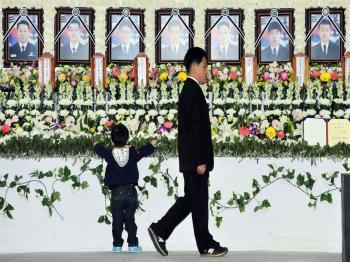
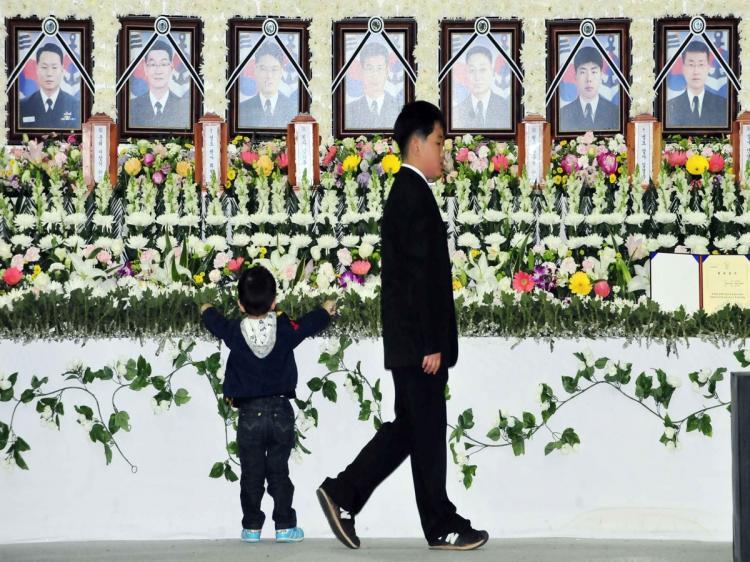
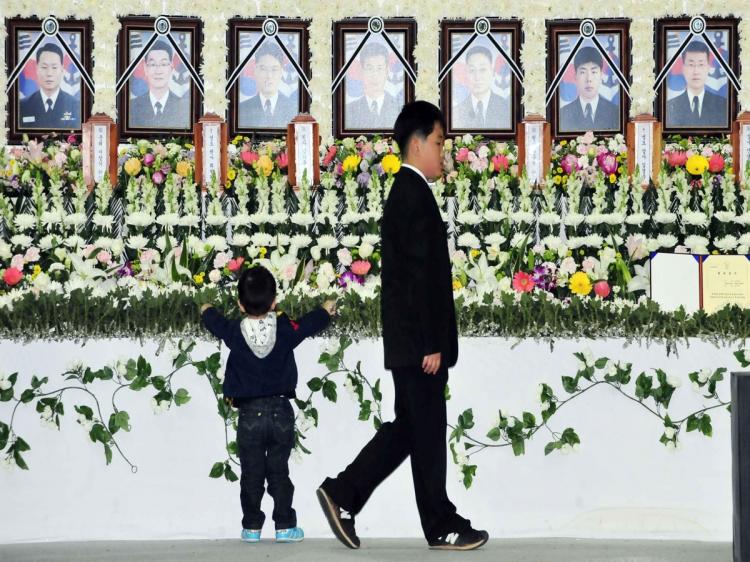
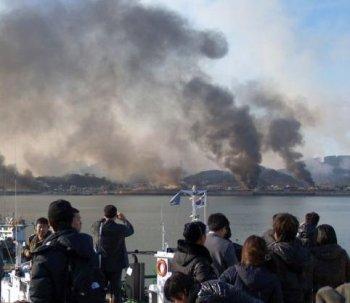

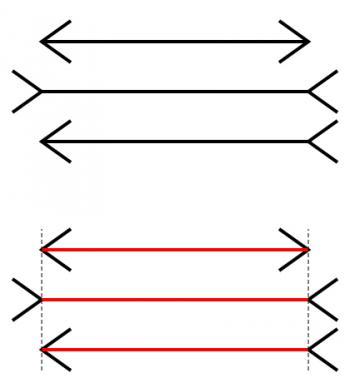
Friends Read Free